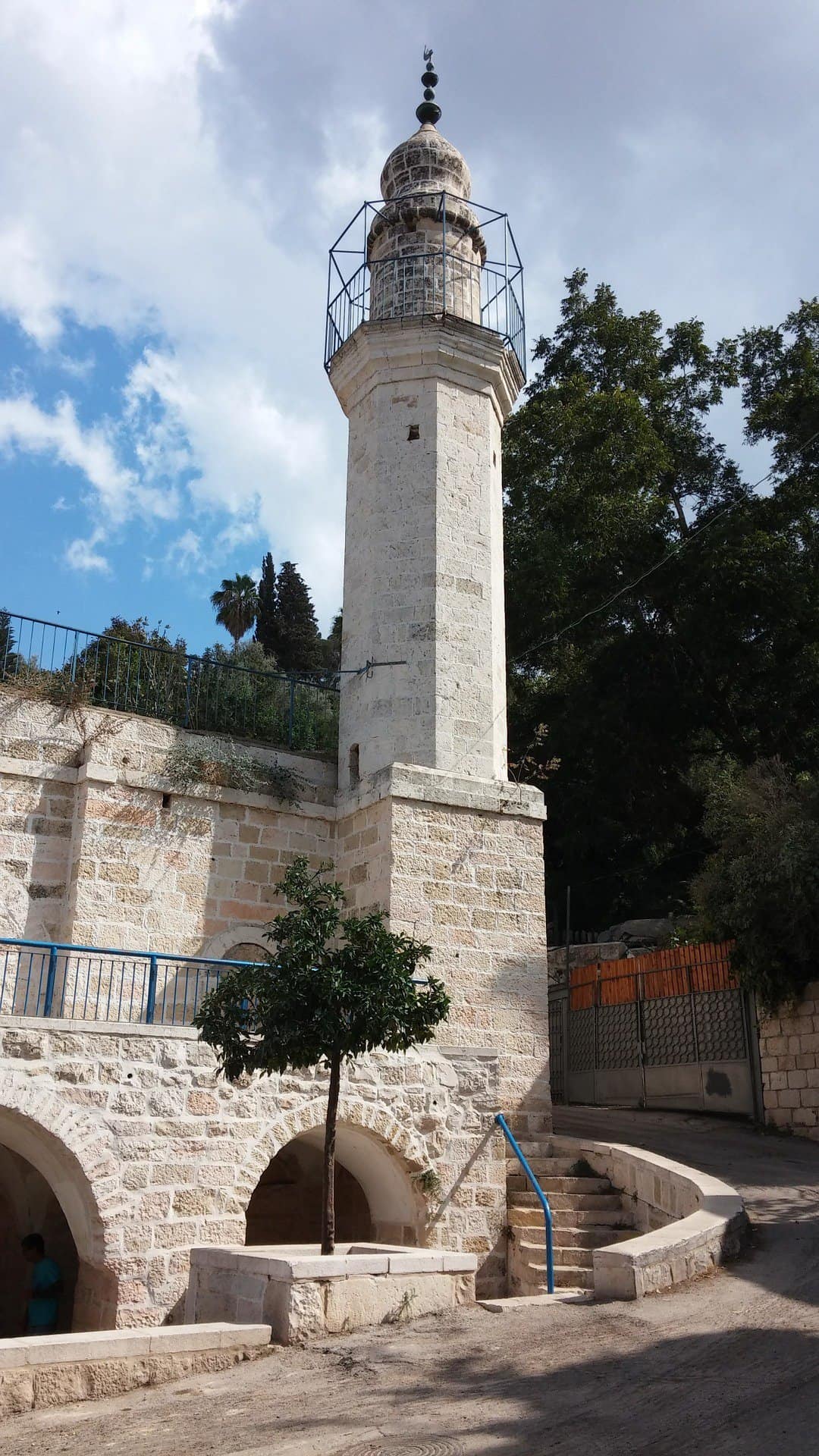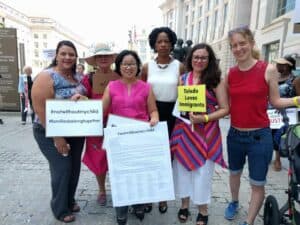
During the season of Lent, Churches for Middle East Peace is focusing on Jerusalem as a city shared by three faiths: Judaism, Christianity, and Islam. This week, we look closer at the deep meaning Jerusalem holds for the Muslim community.
Glory to Him who journeyed His servant by night, from the Sacred Mosque, to the Farthest Mosque, whose precincts We have blessed, in order to show him of Our wonders. He is the Listener, the Beholder.
(Qur’an 17:1)
It is believed that the prophet Muhammad traveled to Jerusalem during his Night Journey, around the year 621 A.D. According to Islamic tradition, this was not only a physical journey, but also a spiritual one. On this journey, Muhammad traveled to a mosque where he prayed and was then taken up into heaven. The mosque Muhammad prayed at is now believed to be the site of Al-Aqsa Mosque or Haram al-Sharif, and is subsequently the third holiest site in all of Islam. Furthermore, the shrine of the Dome of the Rock marks the location of Muhammad’s ascent into heaven.
In addition to the Dome of the Rock and Al-Aqsa Mosque, the city of Jerusalem holds deep significance as the historical location of many of the prophets of Islam: including Abraham, David, Solomon, and Jesus.
The holy sites in Jerusalem operate under the security of the “Status Quo” that has been in effect under every ruling authority since the Ottoman Empire. The Status Quo is a legally binding agreement between the religious communities in Jerusalem, and governs their access to each of their holy sites in the sacred city. This past summer the Status Quo of Haram al-Sharif, the site of Al-Aqsa Mosque and the Dome of the Rock, was threatened.
After escalations of violence and an attack against Israeli soldiers, the Israeli government installed metal detectors at the entrances to Haram al-Sharif. This act brought fear and anger to many Muslims who worship there on a weekly basis, and was viewed not only as a violation of the Status Quo but also a violation of Islamic sacred space, leading to protests in the streets of Jerusalem, as well as concern and outrage in the international community.
After escalations of violence and an attack against Israeli soldiers, the Israeli government installed metal detectors at the entrances to Haram al-Sharif. This act brought fear and anger to many Muslims who worship there on a weekly basis.
While the issue around the Temple Mount was temporarily resolved and the metal detectors have been taken down, the Status Quo remains on unsteady ground. The vulnerability of the Status Quo has been increasingly clear as Christian sites closed due to the proposed tax bill. The tax issue even affected what is often considered the holiest site in Christianity, the Church of the Holy Sepulcher, which closed its doors for a few days this past week in protest.
CMEP advocates policies that call for respecting the religious liberty of all peoples, and urges Israeli and Palestinian leaders to ensure the access of Jews, Muslims, and Christians to their holy sites in Jerusalem. As we continue to pray for the peace of Jerusalem, let us do so remembering also our Muslim siblings who worship at Haram al-Sharif.
To conclude, we offer you the Adhan, which is the Islamic call to prayer. The following is the Arabic transliteration and the English translation of what you would hear:
Allahu Akbar
God is Great
Ashhadu an la ilaha illa Allah
I bear witness that there is no god except the One God.
Ashadu anna Muhammadan Rasool Allah
I bear witness that Muhammad is the messenger of God.
Hayya ‘ala-s-Salah
Hurry to the prayer (Rise up for prayer)
Hayya ‘ala-l-Falah
Hurry to success (Rise up for Salvation)
Allahu Akbar
God is Great
La ilaha illa Allah
There is no god except the One God.
And we pray:
God,
We continue to pray for the peace of Jerusalem, and for all of the people who call it holy. We pray for Muslims who worship at Haram al-Sharif, that they would continue to be granted the freedom to do so. We ask that the Status Quo would be maintained so that all people of all faiths are able to worship in their holy places.
In your name we pray,
Amen.
Molly Lorden is the CMEP1835 Coordinator for Churches for Middle East Peace. She is also currently studying toward a Master of Divinity at Princeton Theological Seminary. This article first appeared on Churches for Middle East Peace.


